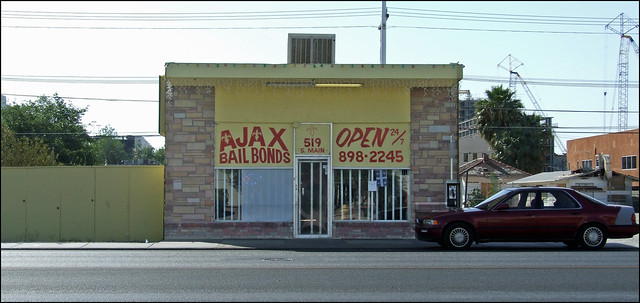This Mother’s Day the #FreeBlackMamas campaign will bail out Black mothers and caregivers from jails and detention centers in many local communities. The campaign, which is organized by the National Bail Out collective, has bailed out over 300 Black women since it first started three years ago. In a recent article for The Appeal, Josh Page — a sociologist who worked as a bail bond agent for a year and a half — describes how the private bail industry excessively profits from low-income women and women of color because they are often the ones responsible for bailing out husbands, boyfriends, fathers, and sons.
Poor men of color make up the majority of the jail population and many do not have adequate resources to post bail, so this responsibility falls to defendants’ female family members and romantic partners. To post bail, these women first must pay a bond premium and also co-sign on the bond. Co-signing not only results in financial hardship but places many women under similar forms of surveillance as the defendants they co-sign for. This process can also exacerbate strain in their personal relationships, including with defendants. Page describes the experience of one of the women in his study named Angie,
“…many co-signers may feel they have no choice, even when they personally suffer from a defendant’s alleged criminal behavior. For example, I worked with a Native woman named Angie whose partner, Johnny, had cheated on her with a minor. Angie was furious and hurt, but felt she had to bail out Johnny “for the kids.” Giving up $750 and signing the bail contract, Angie anxiously took responsibility for Johnny making his court dates. If he didn’t, she would face additional costs.”
In addition to deepening existing inequalities by extracting wealth from already struggling communities of color, bail companies and insurance corporations (who partner with bail companies as sureties) reap huge profits. Page expands further on just how profitable this industry is,
“There are about 35 major industry players; with their backing, bail companies can write bonds far above their cash on hand. In exchange, the insurance corporations typically take 10 percent of each bond premium. In 2012, sureties secured more than $13.5 billion in bonds. These corporations risk little: In auto and property cases, insurance companies typically pay out 40 to 60 percent of their revenue in annual losses. Bail underwriters, records suggest, pay less than 1 percent in losses.”
In the many jurisdictions where bail reform is under consideration Page urges policymakers and the broader public to remember “…the extreme costs of care that the bail industry and criminal legal system impose on already disadvantaged women.”


Comments 8
Wonda Heckler — July 1, 2021
Thanks for the info i will try to figure it out for more
Thanks to this article I can learn more. Expand my knowledge and abilities. Actually the article is very real. official website
Thanks for sharing.I found a lot of interesting information here. A really good post, very thankful and hopeful that you will write many more posts like this one.
Hillary — September 24, 2021
I was actually reading your article and found some really interesting information. The thing is quite clear that I just want to thank for it.
MyAARPMedicare Login
Mark Arthur — October 26, 2021
I went through the article I got what I was searching for thankyou very much. my-estub.one/
James — October 26, 2021
I read this information it was quite helpful. Thank you.
my-estub.one/
James — October 26, 2021
I Just Completed it was perfect. I got what I was looking for.
https://my-estub.one/
James — October 29, 2021
This blog was really helpful. https://blankfaxcoversheet.run
Lakhan — December 7, 2022
What a bank full is not a great full it is a amazing and nice post.
ACE Flare
monsilelig8 — February 24, 2024
pay bills online, or access educational resources, Ace Flare provides a range of offerings to help you manage your finances effectively and achieve your financial goals.
https://aceflare.shop/